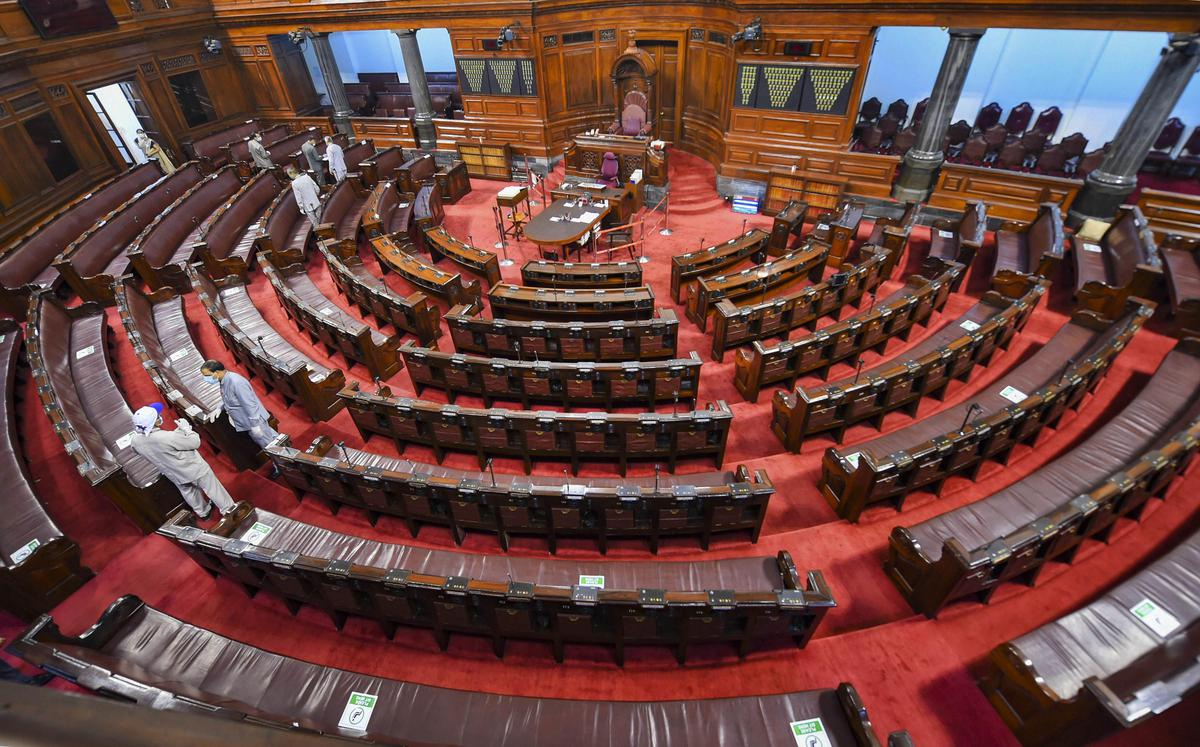New Delhi, Jun 11: The Rajya Sabha election results have been bittersweet for the Congress and the key lesson for the party is going forward on the road to 2024 ensuring unity, say analysts who also feel a more hands-on approach of the central leadership would yield positive outcomes.
Some analysts also pointed out that “outsourcing” political management to regional satraps such as Bhupinder Singh Hooda in Haryana may have proven counterproductive and micromanagement by the Gandhi family was needed.
While in Rajasthan, the ruling Congress won three of the four seats, it suffered a setback in Haryana where the grand old party’s Ajay Maken, a former union minister and a party general secretary, lost to the BJP-backed Independent candidate Kartikeya Sharma.
Congress’s Haryana MLA and authorised polling agent BB Batra said while the vote of a party MLA was declared invalid, party MLA Kuldeep Bishnoi cross-voted for Sharma, a media baron.
Lack of unity seemed to be the party’s undoing in Haryana.
In a tweet in Hindi after the voting, Bishnoi said, “Phan kuchalne ka hunar aata hai mujhe, saanp ke khauf se jungle nahi chorha karte (I have the talent to crush a snake’s fangs, one should not leave the jungle for the fear of the snake).”
There is a feeling that Bishnoi should have been won over by the central Congress leadership.
While disunity proved to be the party’s undoing in Haryana, the story was completely different in Rajasthan with the faction-ridden state unit showing rare unity with both Chief Minister Ashok Gehlot and Sachin Pilot camps working to ensure the success in the polls.
Rasheed Kidwai, the author of “24, Akbar Road” and “Sonia: A Biography”, said the hands-on approach of the top leadership of the Congress was “missing”.
“The Congress had outsourced it to regional satraps, whether it was Bhupinder Hooda in Haryana or Ashok Gehlot in Rajasthan. The political management should have been handled by the central leadership, which was missing” Kidwai said.
“Over reliance on regional satraps is going to complicate things because now in Rajasthan with the Gehlot-Pilot thing, Pilot camp would be under pressure to put further pressure on the top leadership,” he said.
Kidwai asked who will now take ownership of the Haryana “fiasco” and said the central leadership should have micromanaged the situation there which it did not.
Echoing similar views, Manindra Nath Thakur, an associate professor in Jawaharlal Nehru University’s Centre for Political Studies, agreed that unity and hands-on approach of the Congress’ central leadership was something the party should strive to achieve going forward.
The Congress leadership needed to assert and reach out to people for the Rajya Sabha polls, Thakur said, adding that the Congress is losing the “command” that is needed in such polls.
“This is a moment of crisis for the Congress and at this moment it has to demonstrate, it is down but not out,” he said.
Sanjay K Pandey, a Jawaharlal Nehru University professor and a political commentator, said the Congress’ strategy of relying on satraps cannot be faulted as Gehlot showed with his politically-astute moves that success can be achieved.
However, he said unity is a lesson that the Congress must draw and noted that the party was striving for it and reaching out to Opposition parties.
Gehlot not only managed to keep the flock of its supporting MLAs together but also embarrassed the BJP by wooing over one of its MLAs to foil the saffron party’s efforts to get an independent, outgoing MP and media entrepreneur Subhash Chandra, elected.
Newly-elected MP Randeep Surjewala said it was a victory of truth.
Pramod Tiwari said the magic of Gehlot worked for the Congress.
Rajya Sabha polls for 57 seats were held across 15 states. While 41 members in 11 states were elected unopposed, elections were held for 16 seats in four states on Friday due to the presence of more contestants than the available vacancies in each of these states.
Congress has got nine seats in this election and now its strength in the upper house will be 32. That is, it will have the advantage of three seats because before the elections in these 57 seats, the number of its members was 29.
Out of these 29 members, the term of six members is ending in July. Of these, P Chidambaram, Jairam Ramesh and Vivek Tankha have once again been elected to the Upper House. (PTI)


